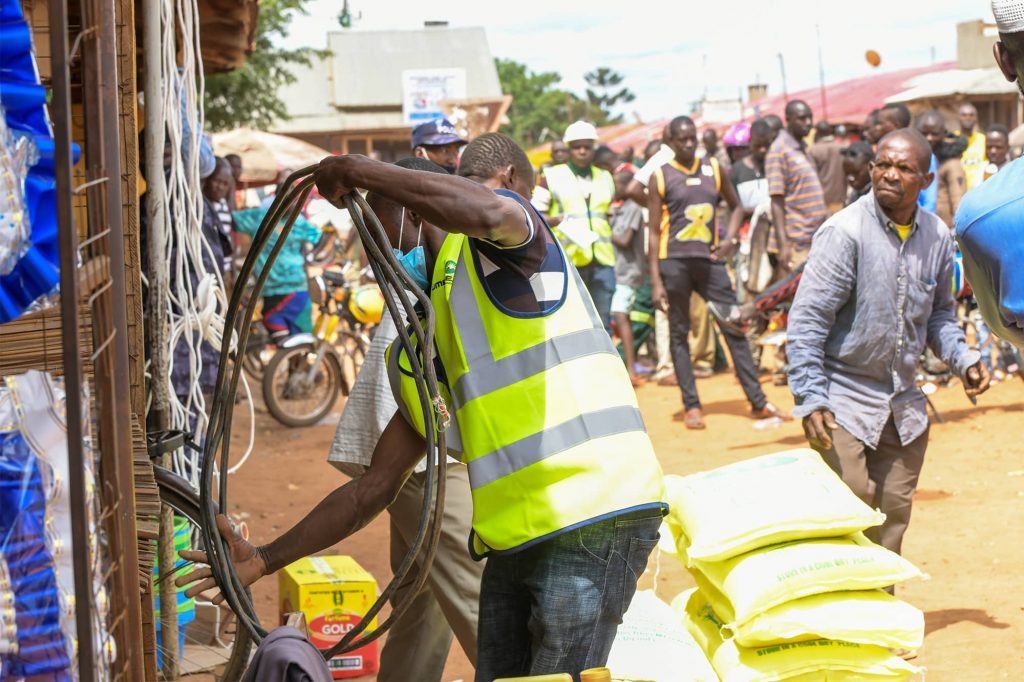Government to Pay Umeme Buyout After Verification, Says Treasury Secretary
The Secretary to the Treasury, Ramathan Ggoobi, has assured that the Government will settle the buyout amount for electricity distributor Umeme once the verification and valuation process is completed.
Speaking at a post-budget dialogue organized by the Private Sector Foundation Uganda (PSFU) at the Emin Pasha Hotel in Kampala, Ggoobi clarified that the 2024/25 fiscal year budget couldn’t include an undefined figure for the concession.
Ggoobi explained that funds would be sourced after the Electricity Regulatory Authority (ERA) and the Auditor General finalize their process.
“We couldn’t allocate an unknown figure in the budget for the concession. That’s why we decided to finalize the verification process first. Once that’s done, we will provide the necessary funds. In Uganda, we address problems practically,” he stated during the event.
When asked if the amount could be included as a supplementary during the fiscal year, Ggoobi mentioned, “
We may use an off-balance sheet method. We will make a decision.”
Umeme entered into a 20-year concession agreement effective March 1, 2005, signing a lease and assignment agreement with Uganda Electricity Distribution Company Limited (UEDCL) for the power distribution network.
This concession is set to terminate on February 28, 2025, followed by a 30-day transition period ending on March 30, 2025.
Moses Simbwa, the finance manager at ERA, stated that a buyout amount of $117 million (approximately UGX 433 billion) is expected by March 2025 as the company exits the market.
This buyout amount represents Umeme’s unrecovered investments through tariffs. “The Government made a policy decision to concession various segments of the sector 20 years ago.
The generation segment given to Eskom transitioned smoothly last year,” he noted. “Now it’s Umeme’s turn.
The Government is expected to pay a buyout of about $117 million by March 2025. This omission from the budget is likely intentional, probably to be addressed through a supplementary budget.”
Initial estimates for the buyout were around $225 million (approximately UGX 833 billion), pending the Auditor General’s final verification.
Transition Plans
Irene Batebe, the permanent secretary of the energy ministry, stated in December last year that preparations for a smooth transition were in progress ahead of Umeme’s exit.
“We agreed with Umeme to keep the distribution assets here and retain most of the staff. We are working on supporting UEDCL to take over operations,” she said.
“This support includes mobilizing financing for the distribution company to offset the buyout amount since Umeme recovers its investments through tariffs. As the concession ends, there will be unrecovered investments, which will constitute the buyout amount.”
The Government plans to contract a private company for a joint venture with UEDCL to operate after Umeme’s exit.
Operations at the Stock Market
Umeme, listed on both the Uganda Securities Exchange (USE) and the Nairobi Securities Exchange, has attracted a diverse shareholder base in the region.
The company was listed on the USE in 2012 with an initial public offering (IPO) price of UGX 275 per share. Robert Baldwin, CEO of Crested Capital, noted that from 2012 to 2023, Umeme paid about UGX 659.2 billion in dividends to USE shareholders.
“At the end of the concession, the unrecovered capital investments will be a financial asset receivable as a buyout amount. This amount, contractually denominated in US dollars, will be paid in cash with a 5.96% return,” he explained during a recent investor engagement at USE.
“Umeme traded a total turnover of UGX 937 billion from 2012 to April 24, 2024.”
The stock price fluctuated, hitting an all-time low of UGX 165 in November 2021 and a high of UGX 692 in August 2015.
As of June 20, 2024, the stock opened trading at UGX 460, 40.2% higher than the IPO price.
Umeme’s Statement
In a statement, Umeme emphasized its priorities as the concession nears its end: ensuring continuity of service to customers, maintaining business performance, investing in the distribution system, and ensuring a seamless asset retransfer to the Government as per the concession agreement.

